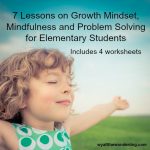Brain Research and the Benefits of Play
Play and the Brain
As chilly winter days transition into balmy spring time, children and adults both anticipate spending more time outdoors. Unfortunately, the school environment doesn’t always cooperate with the onset of spring fever as students prepare for and take mandated tests or complete end of year projects. Test anxiety and teacher stress is at an all time high yet many classes forgo stress by reducing recess altogether in order to focus on academic studies. A nationwide study on how first through fifth grade children spend their time at school found that on a randomly selected day, 21% of children did not have any recess at all. Meanwhile in Finland, students spend 4 1/2 hours a day in school and of that 1 1/2 hours are spent in recess!
What are the benefits of recess? Here are a few:
- Brain research shows a relationship between physical activity and the development of brain connections.
- Children who are active at school continue to be active at home.
- Children develop social and behavioral skills as they practice leadership, negotiation, taking turns and resolving conflicts.
- Memory and attention are improved when learning is spaced out and recess provides a necessary break from academics.
- Play for children is not just a social and physical outlet, it is a therapeutic and learning activity.
How can adults encourage positive play? The best way is by setting the stage before hand.
- Just as in the classroom, develop a specific set of rules for children to follow. Encourage them to be a part of the process and then commit to following the rules.
- Brainstorm games that encourage responsibility, cooperation, and communication. Make a list of the games to facilitate child choice.
- Anticipate and discuss the most common problems that are encountered on the playground: not including everyone in a game, not encouraging others, putting someone down because of a lack of ability, and not following the rules.
- Develop a system for students to solve problems when they occur. Practice with role-play how to handle disagreements.
- Regularly review the process to see how it is working.
School counselor resource: Grab ‘n Go Lesson on Cooperation:
Wyatt the Wonder Dog Learns about Cooperation

Wyatt wants to play Frisbee. Max want to build a fort and Callie wants to have tea party. How do the three friends reconcile their differences? Can it be done? When Wyatt doesn’t get his way, Max’s mother suggests he be the Superhero for the day. Join Wyatt as he learns how the magic of cooperation and compromise can bring the five friends closer together.
Feeling left out? Need help getting along with friends? Wyatt the Wonder Dog books weave important life skills into engaging story telling. Join Wyatt as he learns how to be the superhero in his group of friends by using cooperation and compromise. ~MaryFrances Gonzalez MACCC-SLP
Wyatt the Wonder Dog: Learns About Cooperation (Volume 6)
School counselor resource: Grab ‘n Go Lessons on Mindfulness:


[…] Stay active–Children’s bodies were made to run, jump and move. The detrimental effects of our sedentary lifestyle have trickled down to even our children. Is it just a coincidence that depression and anxiety is now commonplace among children? Lots of research has been done on the beneficial effects of exercise on our mental outlook. Movement does not have to be organized sports. It can be a family hike or bike ride that not only lifts everyone’s spirits but creates family time to interact. […]